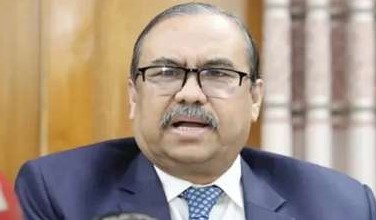Bangladesh’s Chief Justice Obaidul Hassan has announced his resignation “in principle” following intense pressure from student protestors, as reported by broadcaster Jamuna TV.
Hassan, appointed as Chief Justice last year, faced criticism for overseeing a controversial war crimes tribunal that ordered the execution of opponents of former Prime Minister Sheikh Hasina. His resignation comes after a large demonstration outside the Supreme Court, where protesters demanded his immediate departure by early afternoon.
This development follows the recent forced exile of former Prime Minister Sheikh Hasina due to a student-led uprising, which also led to her fleeing Bangladesh.
Reasons Behind Chief Justice Obaidul Hassan’s Resignation
Protesters had given the Supreme Court judges a one-hour deadline to resign, threatening to lay siege to their residences if the deadline was not met.
Asif Nazrul, a student protest leader currently serving in Muhammad Yunus’ interim government, stated that actions should not create conflict between the Supreme Court and the student-led mass uprising.
Bangladesh’s interim leader, Nobel laureate Muhammad Yunus, returned from Europe this week to lead a temporary administration tasked with restoring order and implementing democratic reforms. Yunus, 84, made an emotional appeal for religious unity and spoke about building a new Bangladesh.
Since the ousting of autocratic ex-premier Hasina, there have been several reprisals against the Hindu minority, raising concerns in neighboring India and creating domestic unease.
During a visit to Rangpur, Yunus called for calm and unity, invoking the memory of Abu Sayeed, a student killed by police during the protests. Yunus urged, “Don’t differentiate by religion” and asserted that Sayeed’s spirit represents a unified Bangladesh.
Sayeed, 25, was shot dead by police on July 16, marking the beginning of a crackdown on student-led protests against Hasina’s government.

















